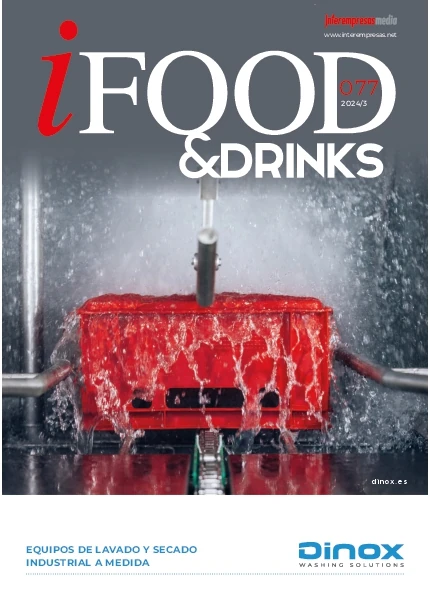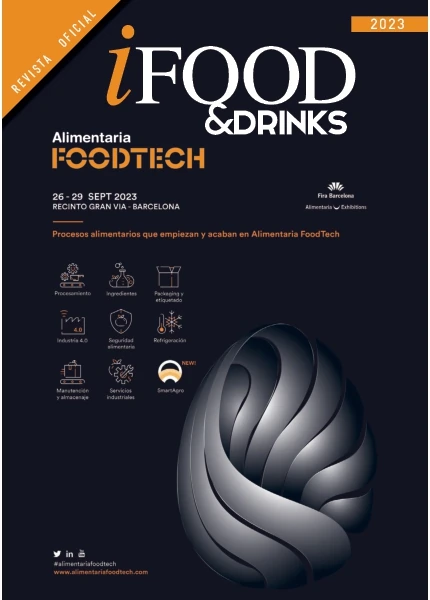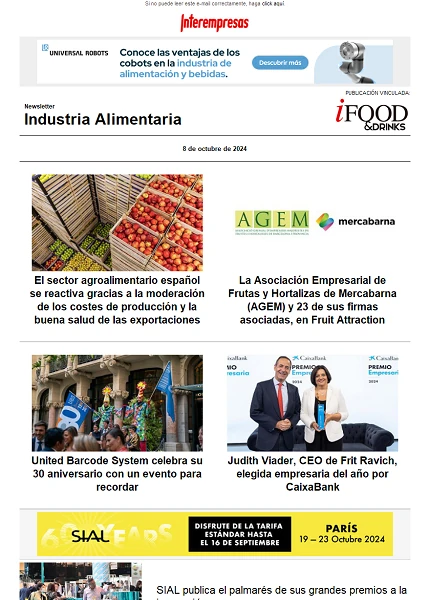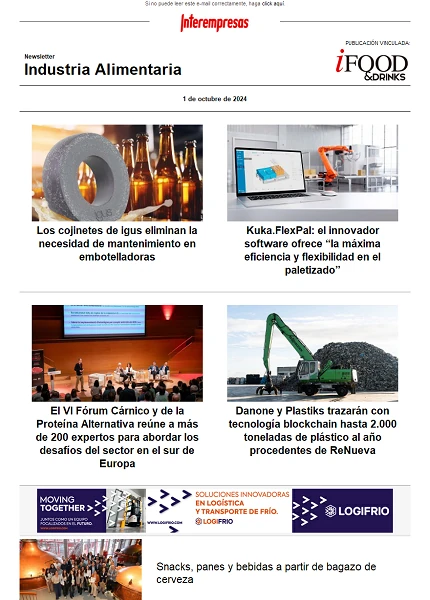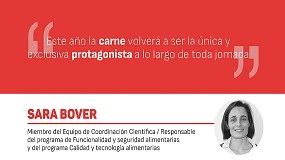Interview with Susana Etxebarria, researcher in the area of environmental improvements and processes of Azti-Tecnalia
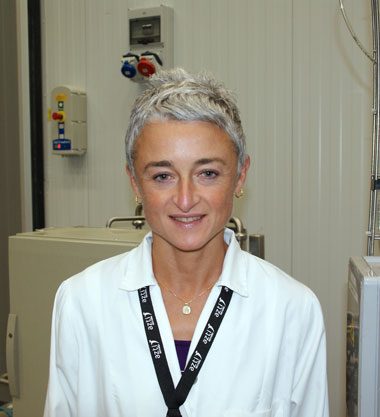
If there is a word that abounds in business jargon in recent years is 'sustainability'. What it means to be sustainable today in a sector with many actors such as the agri-food?
A sustainable food is one who, in their production, marketing, transport, consumption, etc., i.e., in all stages of the food chain, can be considered socially acceptable, economically viable and environmentally friendly with the environment, in such a way that its long-term production is assured.
Regulations, and therefore the demands on our businesses, it has also changed, and they have above all been tightening. How can they have responded enterprises of our country to these requirements? Has it helped them to win in sustainability?
In a market that is evolving, largely based on new patterns of behaviour of both current as future consumers, as well as increasingly demanding legislation, sustainability is one of the protagonists of this scenario. A picture that not only is necessary to design strategies in order to respond and staying at the time, but that, in addition, it is imperative to identify opportunities for increasing the competitiveness and the benefits of the sector, and enterprises of the agro-food sector are in this way.
Regard to whether has helped companies to win sustainability, from the Department of environment, spatial planning, agriculture and fisheries of the Basque Government, policies for sustainable growth as an effective means of ensuring a continuity of the activity and development of human beings have been raised. These policies had been reflected both in the updating of legislation and the development of environmental action programmes. At the regional level be established 'Strategy environmental sustainable development (2002-2020) Basque', which leads all the environmental policy of the Basque country towards sustainable development, at the same time to support the agri-food r & d through environmental framework conventions.
From Azti-Tecnalia, for example, in October 2009 we organized the I Forum of sustainability in the food industry' in the Euskalduna Palace, whose objective was to provide participants of new tools to help them implement environmental improvements in their businesses or production centres in order to identify where to focus the environmental efforts to gain a competitive advantage.
How is our food industry be adapting to the new European policy on sustainable consumption and production?
While it is true that there has initially been sceptical, it is true that this period of crisis has helped the agri-food industry to see sustainability a focus of profitability, sustainability, innovation and cost savings go hand in hand. Also, the food industry is warning each time the possibility of obtaining additional benefit for their actions in favour of sustainability, using this concept as a new selling point, both in advertising and in the products themselves. This situation is also happening in other sectors that produce goods for the public at large.
When speaking of sustainability two fundamental to analyze factors are how it occurs and how treated waste generated. At what point do we stand?
Until little has been a belief widespread in the food sector to the care of the environment, the cost savings and profitability were incompatible. This opinion is due mainly to companies have traditionally tried to solve its environmental problems through technology 'at the end of the tube', sometimes assuming a very high cost and not reaching the desired and required effectiveness. However, the food industry is taking increasing awareness that businesses to better use the natural resources used will be in its favour an important survival factor. All this, together with future increasingly demanding environmental regulations and environmental requirements imposed by the market, has led to the food industry start to see that their residues are an inefficiency of the process that it is possible to reduce; as well as to consider such waste as a by-product and there does not necessarily need to pay for its removal, it is possible to give them some type of utility, either in the process itself and in others from beyond.
Can give us an example of the Spanish food industry companies that have been carried out innovative processes to produce or treat their waste?
Azti-Tecnalia has implemented more than 60 projects of environmental-economic improvement in food industries at the regional, national and international level. Many of these projects are designed to reduce waste at source, as well as to find an economic valuation of the same. To cite an example of one of the companies that participated in the Forum of sustainability of the agro-industry food that we organize in October of last year, the Pepsico group has been working in the production of starch from their waste of orange peelwith very interesting results. And like them, many other companies with which we are currently working and doing research to develop a more sustainable production process.
The food industry is precisely characterized because most of its broadcasts are of biodegradable organic nature, generated during the processing of the raw material. What features can be found that it distinguishes it from other industries?
The food industry is a major consumer of water, natural considered scarce resource today in day, and, therefore, generating large volumes of landfill whose management is a very high cost on occasions. Hence the importance of the optimization of production processes focusing efforts on minimizing the consumption in origin and researching new technologies for the reuse of process water.
We must bear in mind that, as I have mentioned superficially above, badly called 'food waste' are vegetable or animal fractions with high nutritional and functional value, and contrary to the organic fraction of municipal solid waste, they have an almost total absence of contaminants and impurities. They are excellent raw materials considered to be renewable for the sector of human food, animal feed, energy, pharmaceutical or cosmetic. As a special feature to overcome, the generation of byproducts in certain food sectors is produced on a seasonal basis and companies are very atomizadas, so it is necessary to define a strategy and appropriate logistics to allow use of the by-product economic returns positive.
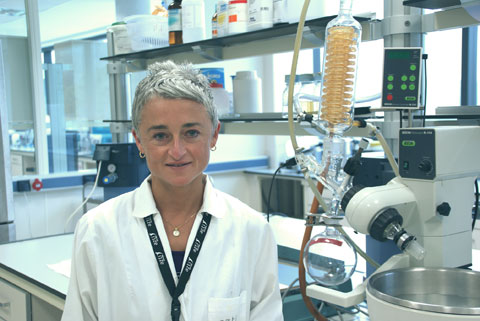
Do companies are investing in r & d in order to make their productions 'more' sustainable? Are they getting the necessary support from the institutions?
They are not only investing in r & d, but in technology. In other words, innovation and sustainability are two concepts that go hand in hand. All development of business strategy, technology development, design of new products, etc., must include from the earliest stages the environmental variable as a way to add value and ensure long-term sustainability.
Both from the autonomous Government Spanish Government and the European Union are pushing policies that support programmes for saving and reuse of water, energy efficiency, use of agro-alimentary by-products, getting more clean energy, and range in short programmes aimed at a more sustainable use of resources, and which take into account the environmental impacts from products design and throughout its productive chain.
What projects it is carrying out Azti-Tecnalia in this regard?
We could say that a large majority of Azti-Tecnalia projects are focused on sustainability. In addition to the large number of projects which, as I have mentioned earlier, we carry out with companies specific to solve specific problems or improve their environmental-economic performance (many of them are confidential), we can highlight some projects that we are carrying out from our area of environmental improvements and processes:
-At the international level, we are currently developing important projects such as the 'Namaste', a project with partners from several European countries and India. This cooperative effort is aimed at the valorisation of by-products of grains and fruits into new foods.
-At the State level include the project ' Ecoalim: new technologies for eco-development of food products '. This project, which we lead and for which count with the collaboration of other three technological centres of different CC AA, is designed to develop new technologies to support the eco-design and eco-development in four key areas on the sustainability of a food product: development and evaluation of agri-food waste and possible reuse of the same, reducing the use of water in processes through reuse, recyclability and biodegradability of packaging materials, and finally the efficiency in the supply chain.
-At regional level, I would like to highlight the study we are doing for the Basque Government, aimed at proposing an effective and viable system of exploitation and valorization of discards from fishing in the Basque fishing fleet.


